(Visited 975 times, 1 visits today)
Over the lifetime of the EPRC we have rescued more than 300 primates as a result of collaborations between EPRC, Forest Protection Departments across the country, local NGOs and community members.
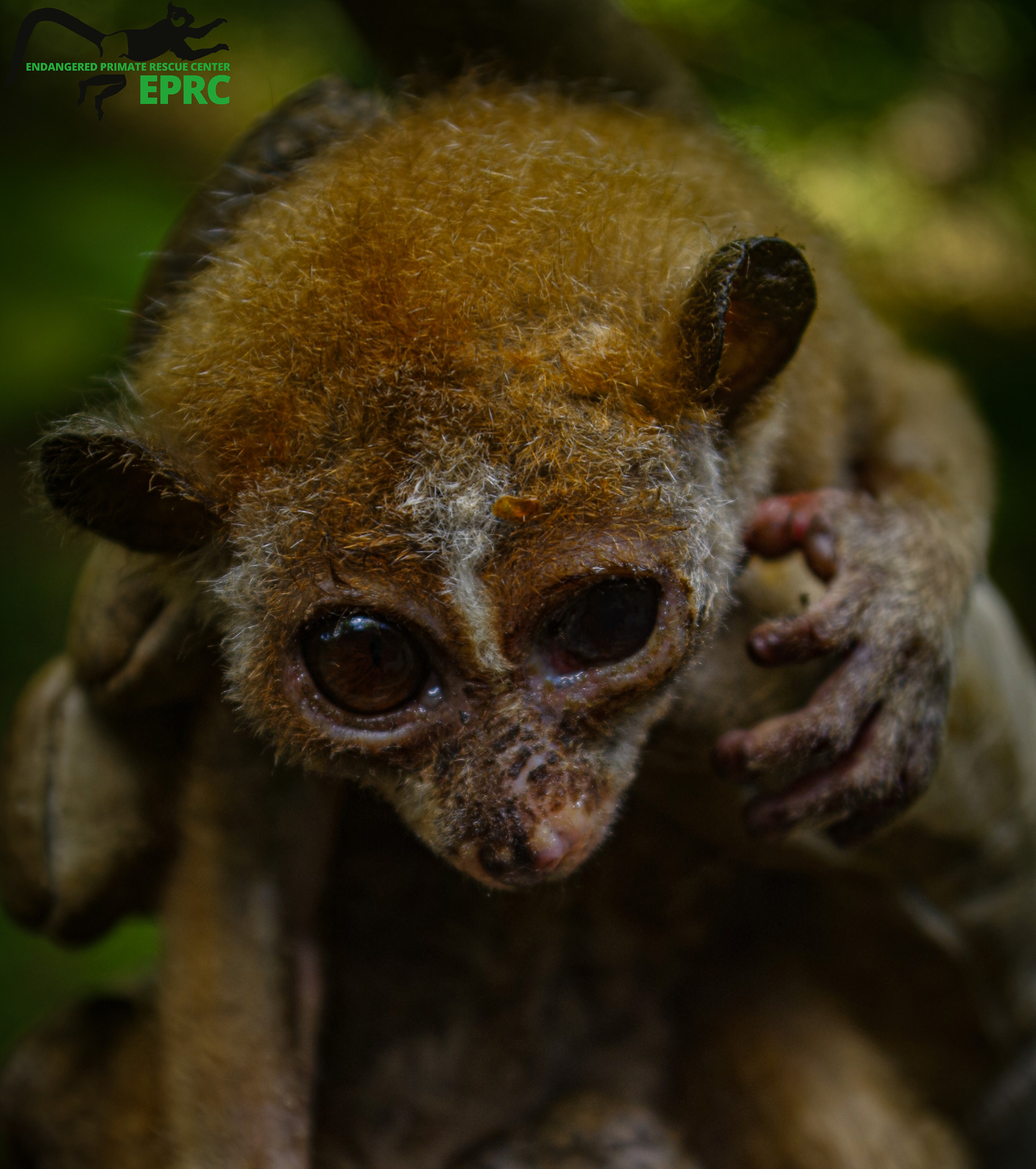
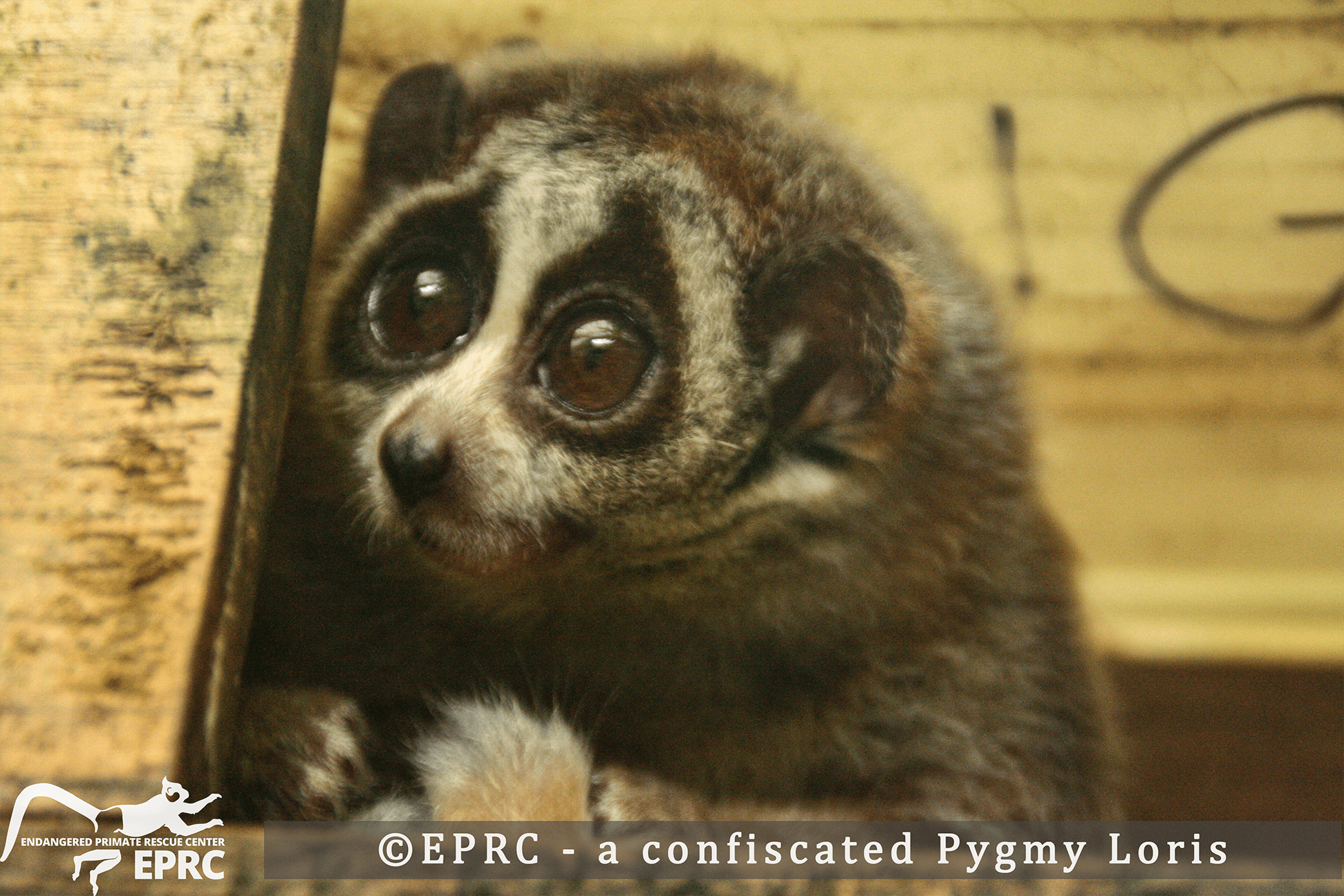
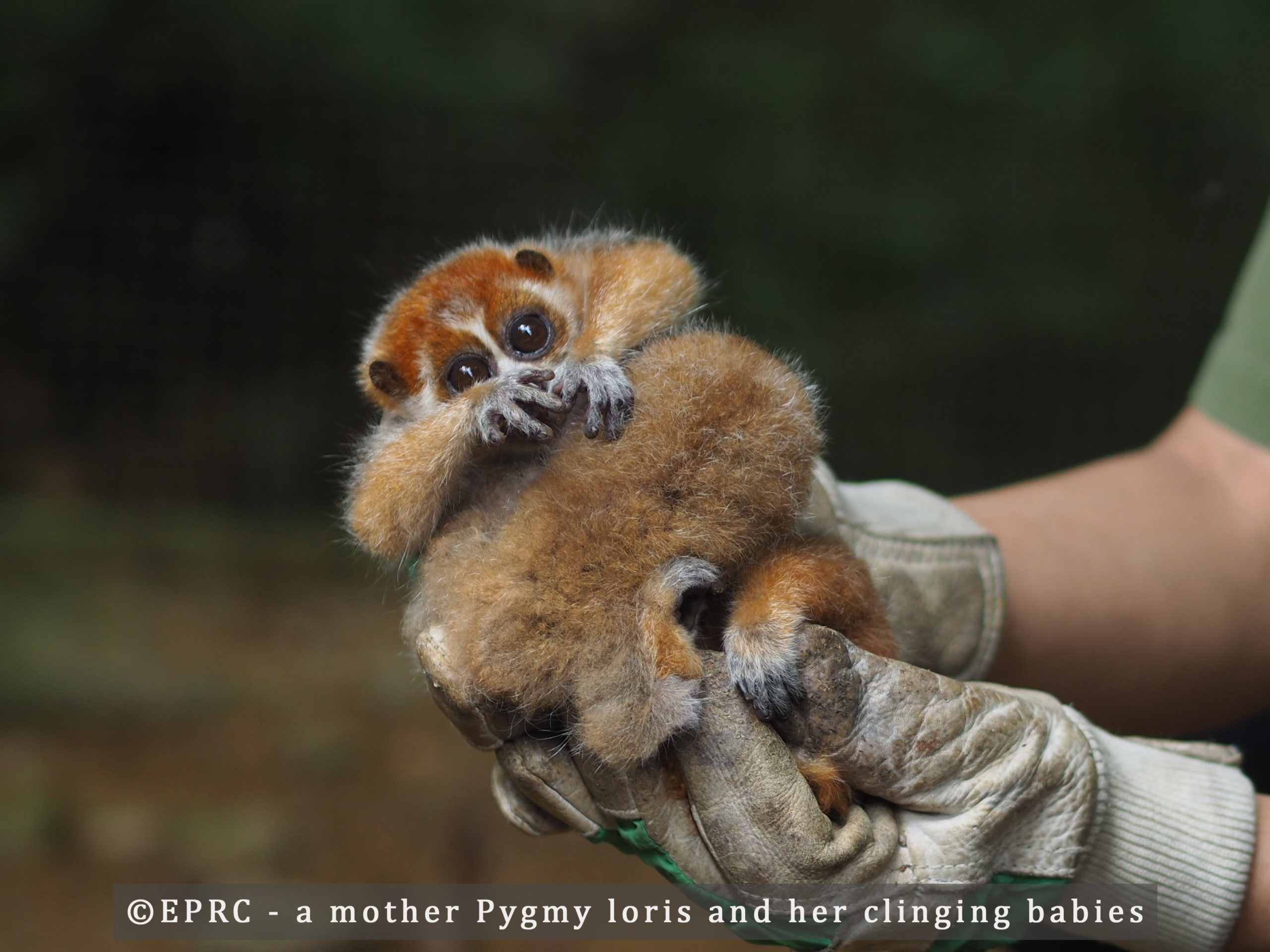
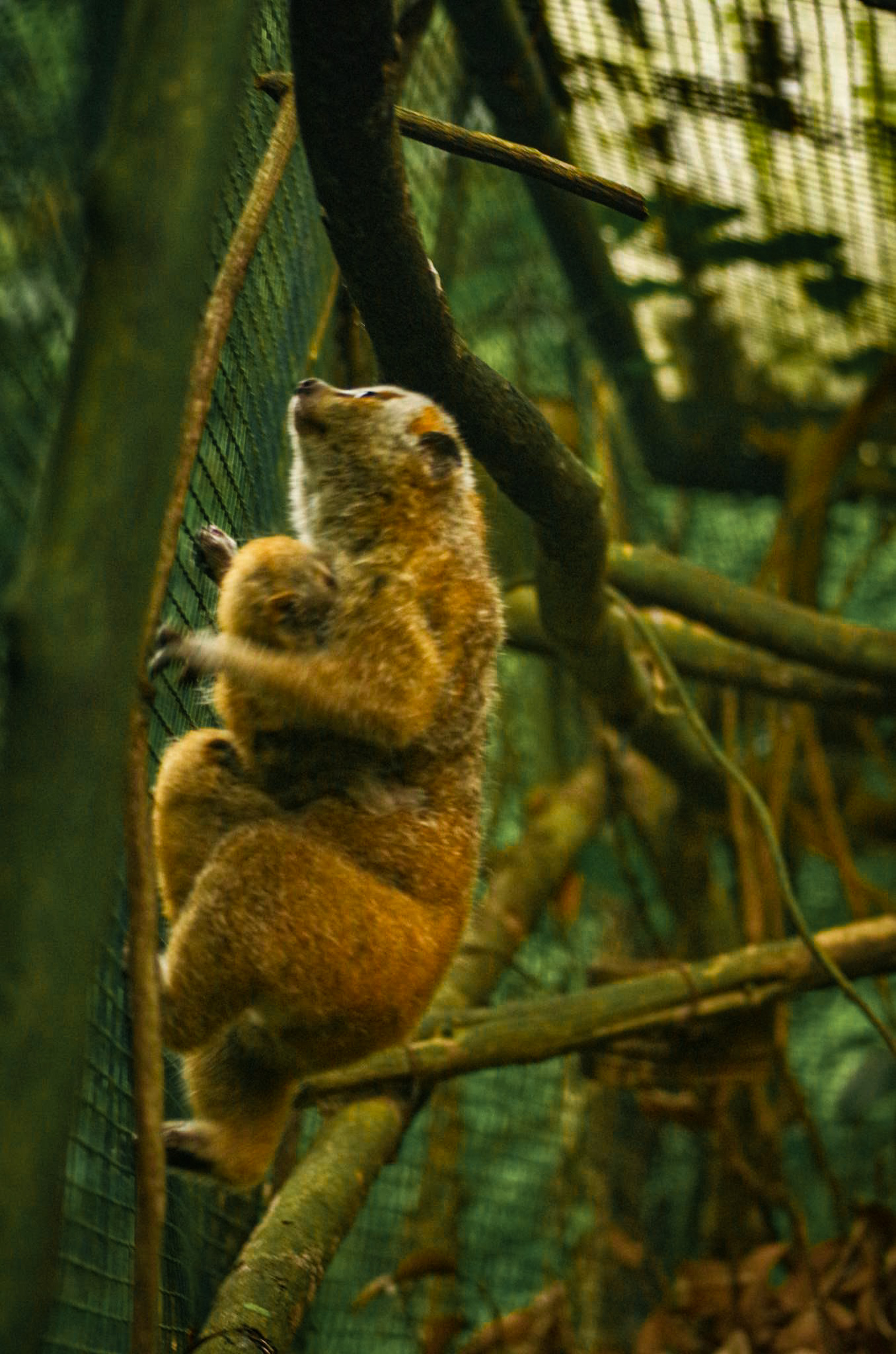
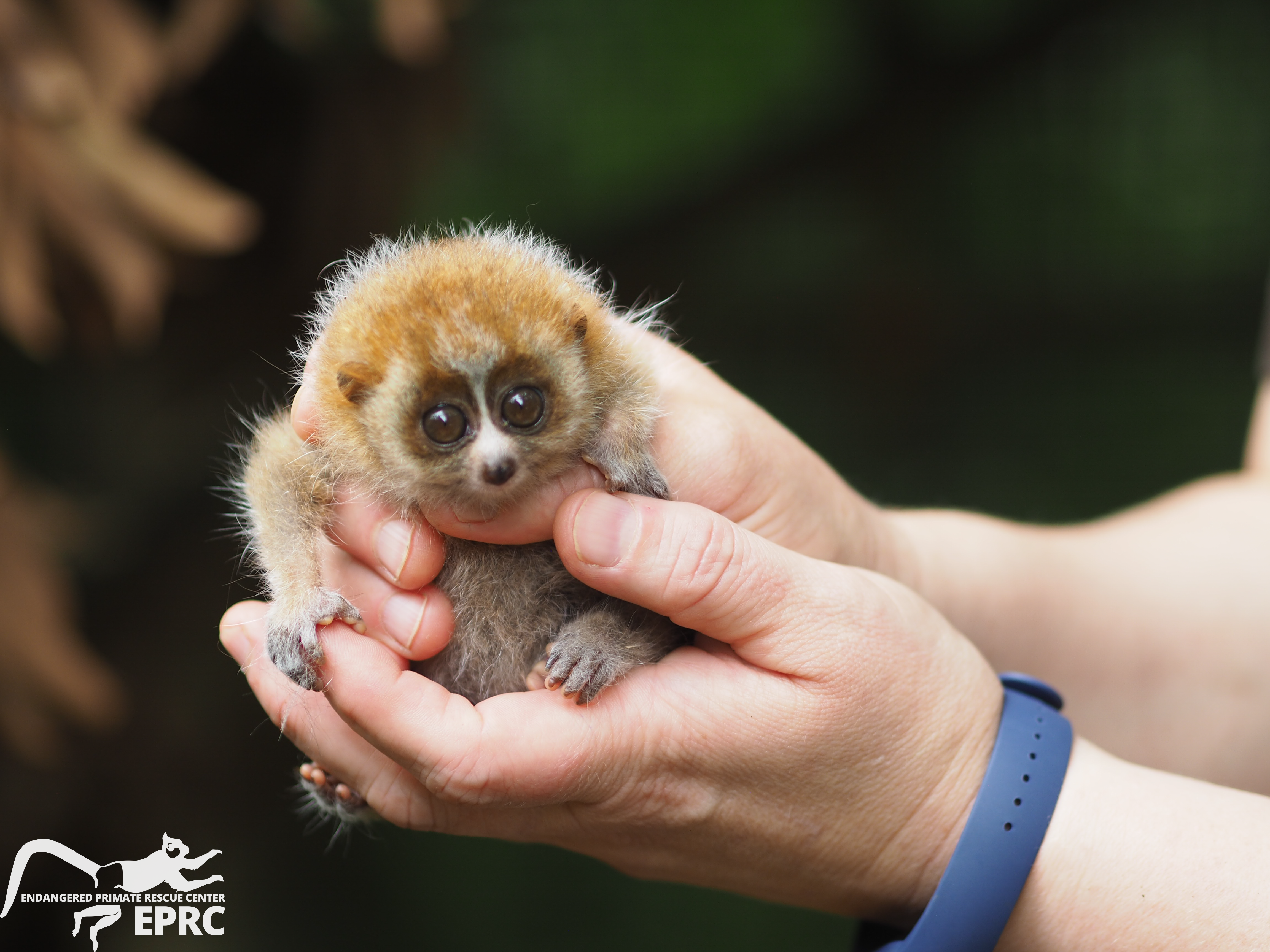

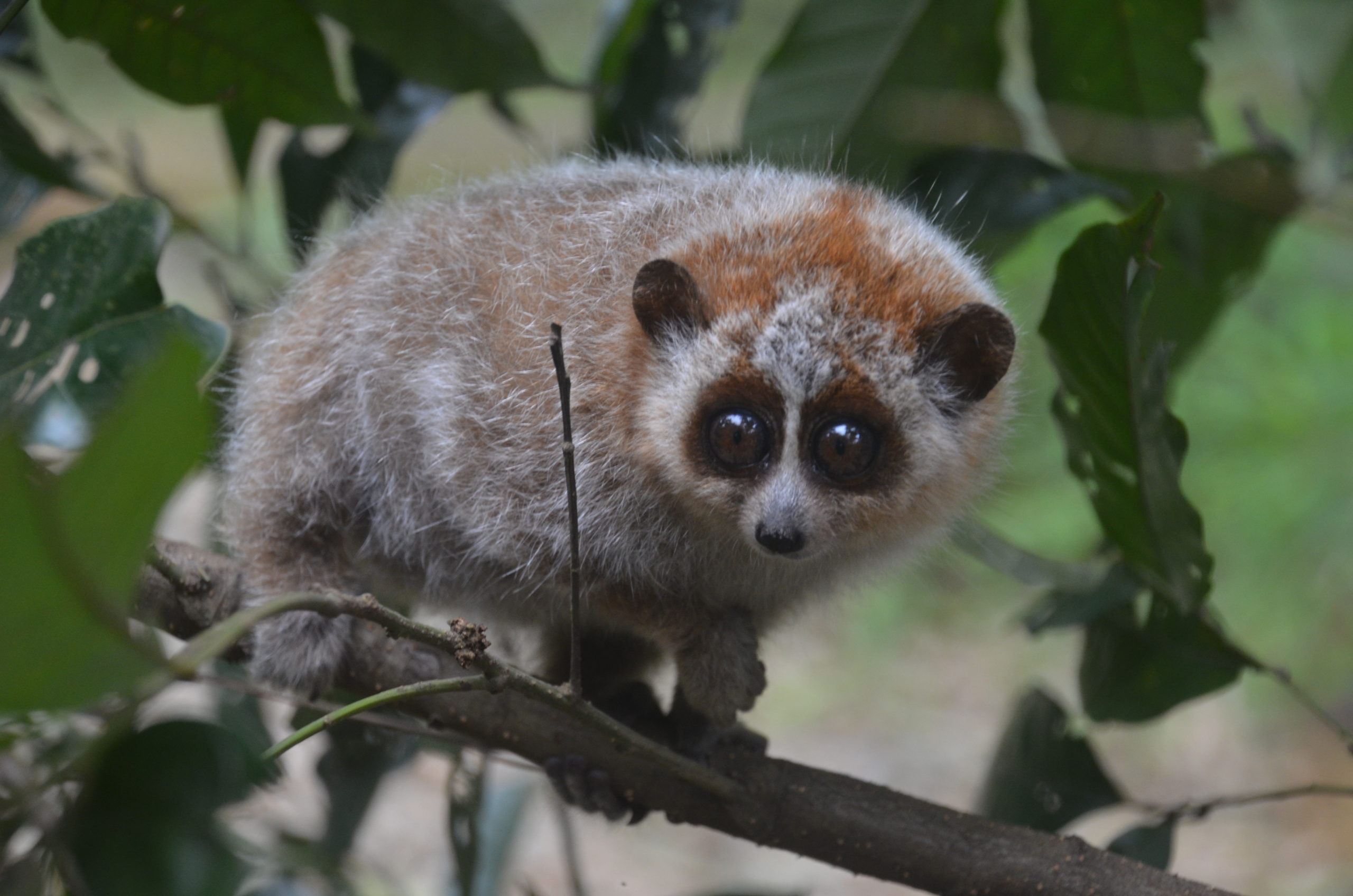
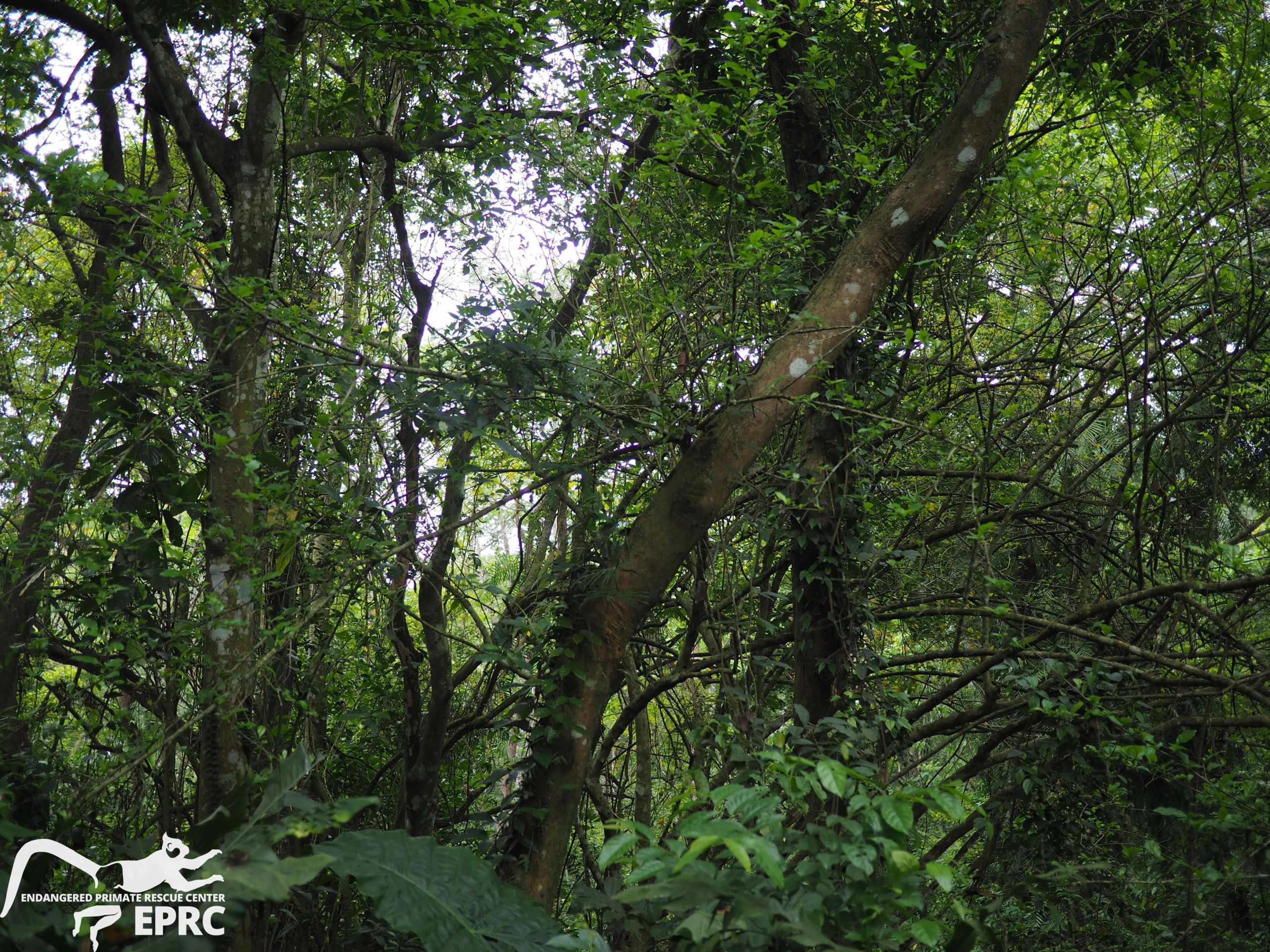
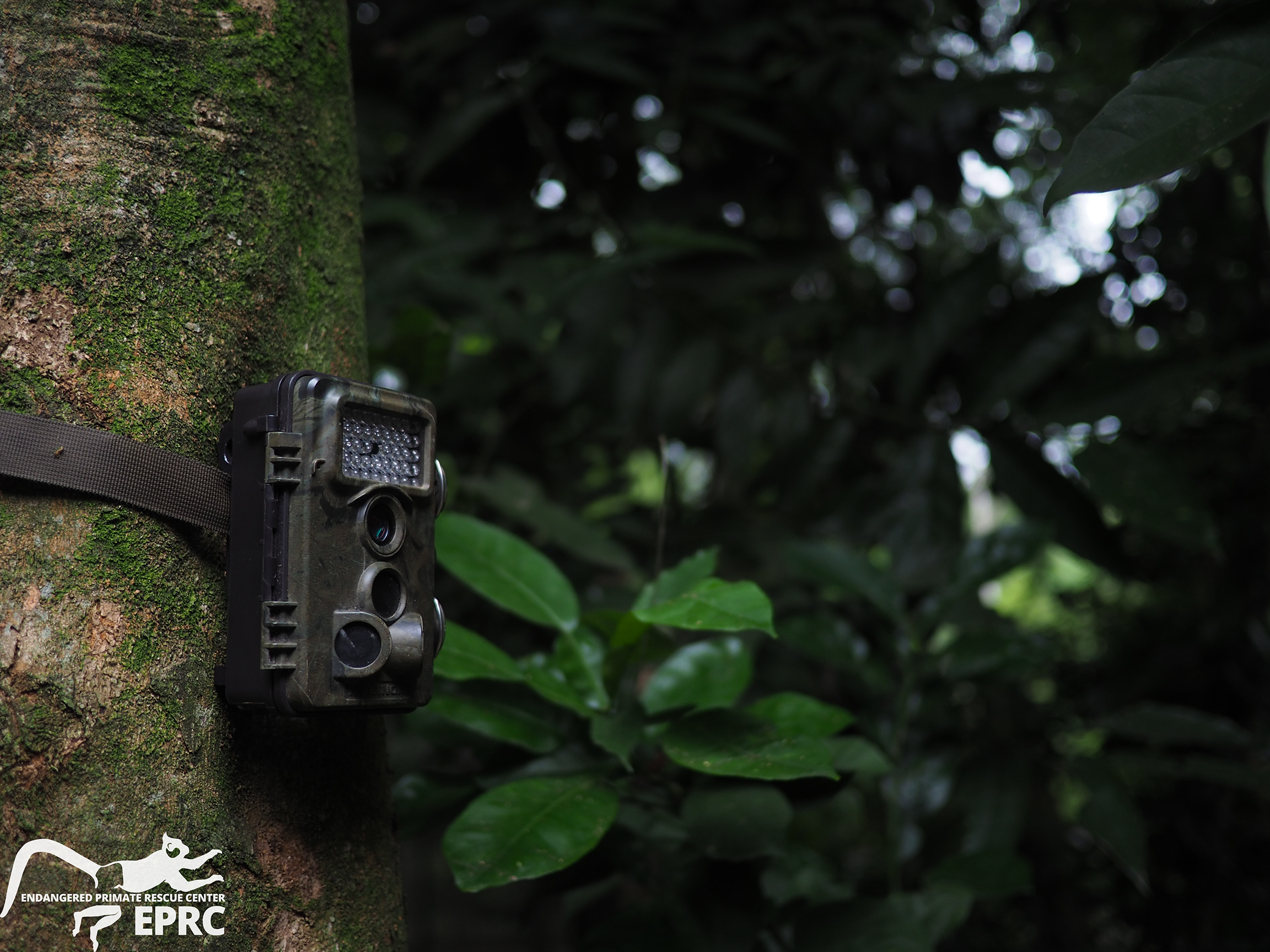
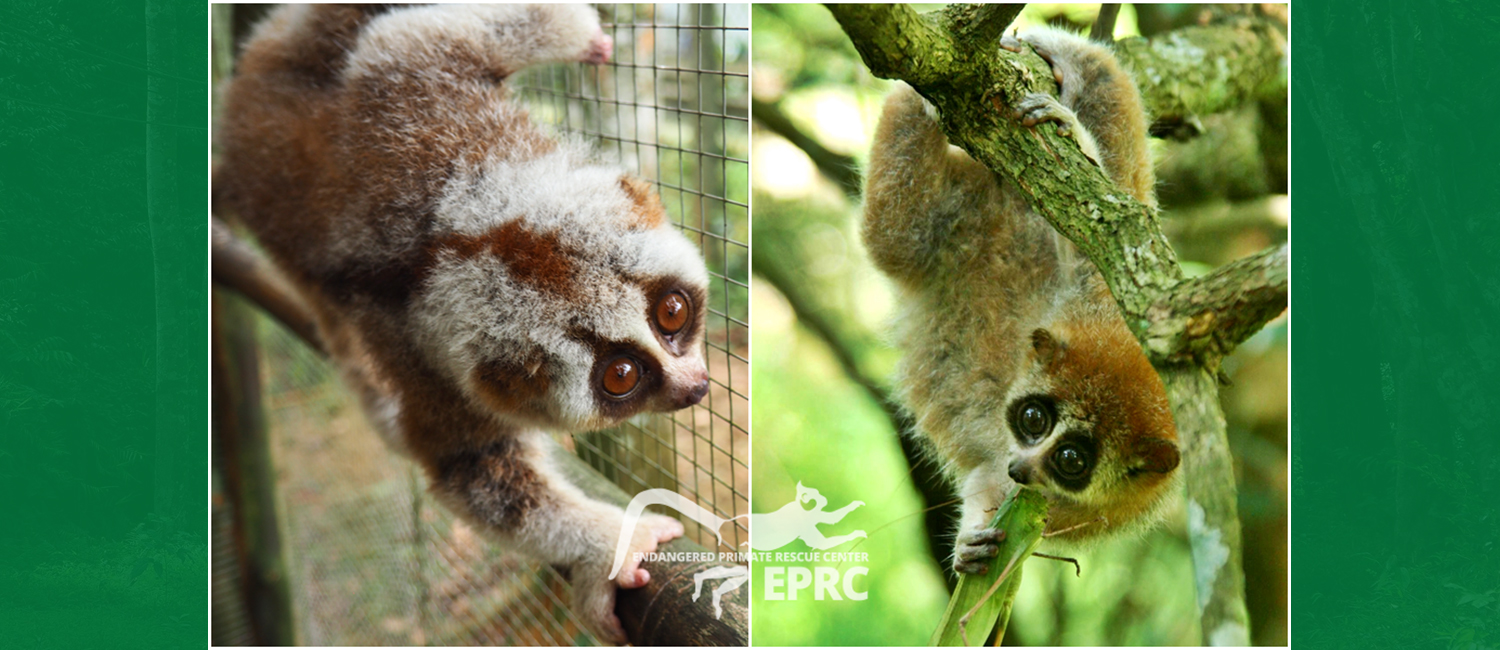
Lorises often come to us in bad condition, they are undernourished, stressed and often suffer disease as a result of a compromised immune system. Lorises are territorial and males do not tolerate other males in their territory, thus they suffer additional stress if we do not have the capacity to house them sufficiently far from each other. Rescued lorises are provided a balanced diet that provides them with natural food sources as well as fruit and vegetables to supplement the seasonal variation in insects and gum. The priority for our rescued lorises is to improve their health and ensure a successful release with a minimal stay in captivity.
The EPRC since over 10 years actively participate in rescuing, rehabilitation and release of two species of slow loris – lesser Nycticebus pygmaeus and Bengal Nycticebus bengalensis
Despite apparent decrease in a number of other primate species in trade, the trend in lorises remain stable and high. Within the period of last 10 years, 193 lorises (120 LSL and 73 BL) arrived in EPRC from confiscations, of which 83 (55 LSL and 28 BL) could have been released back to nature. Unfortunately, many were dead on arrival or in such a poor state that they didn’t survive. Some had to stay in EPRC due to handicaps that prevented release.
Although it is feasible to release adult animals after a short term recovery as they maintained skills allowing them to survive, this is different to animals taken as youngsters for hand-rearing, or the ones born at the Centre, mostly from pregnant females brought in.
Currently we are holding 17 Bengal and 21 lesser slow lorises. A significant part of that group might be suitable for release but only after evaluation of their survival skills in semi-wild enclosures.
There is an urgent need to construct semi-naturalistic enclosures for such animals where they can learn to climb, get the sap from trees and first of all catching insects on their own.
Such a facility will also allow to closely observe their behavior through infrared cameras and assess their ability to utilize natural resources before the actual release.
The enclosures will contain larger trees as well as smaller bushes and ground covering plants. They will be surrounded by a corrugated metal around with lower part wire-netted. That will prevent animals from escaping but will allow insects to enter the enclosure.
The total cost of two enclosures with two night-vision cc cameras is calculated at around
8.000 USD and we would be grateful for any support would help financially in making this possible.
Of course larger donations are also welcome as they will allow to purchase much needed radio-collars to track the released animals.
Thank you in advance for your help. From our side we promise to send you detailed report bi-annually and provide a very good photographic documentation. We will also mention donors on our facebook page. If you need photographic materials for fundraising, or you have further questions please write to Tran Thanh Quang – Communication Officer at Endangered Primate Rescue Center, email: info@eprc.asia
The money transfer can be executed directly to the EPRC through PayPal via the link with a note ‘loris re-wilding’
Thanks you in advance and please contact us in case of any questions.

Established in 1993, EPRC is a not for profit project dedicated to the rescue, rehabilitation, breeding, research and conservation of Vietnam’s endangered and critically endangered primate species.
© Endangered Primate Rescue Center 2020
Website by MINIMUMMEANS